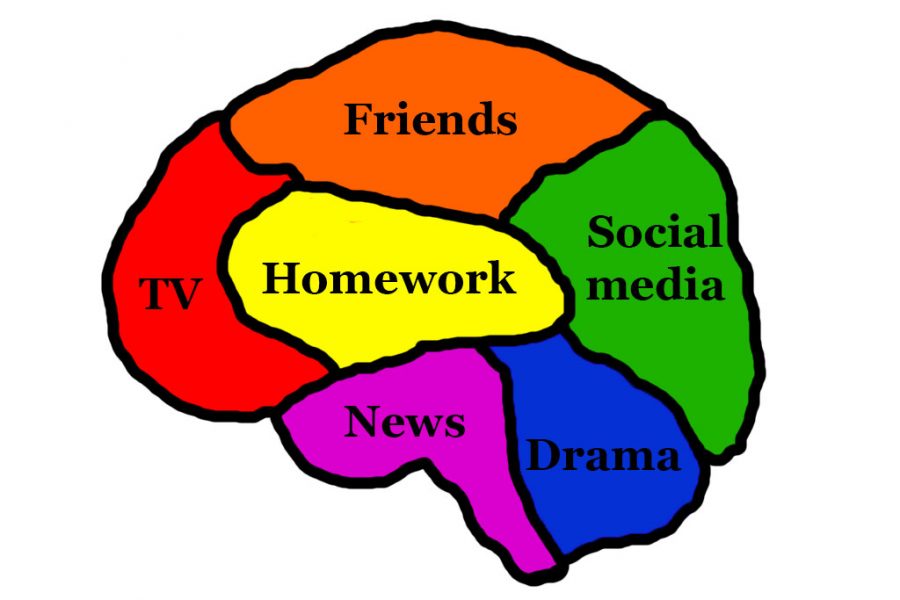Living with attention defict hyperactivity disorder
June 12, 2018
Attention deficit hyperactivity disorder (ADHD) is a chronic condition that affects 1 out of 10 kids in the United States, according to the Centers for Disease Control (CDC). Some common symptoms include the inability to stay still and pay attention for an amount of time, acting out on impulse, and fidgeting hands, legs, and feet. As expected, a child or teen diagnosed with the disorder may have a difficult time maintaining grades and success in school. Living with ADHD can be very challenging, but finding ways to cope and overcome the disorder is even harder.
There are many symptoms of ADHD, but they should only be diagnosed by a doctor. Someone who attempted to diagnose themselves could potentially be mistaking ADHD for a different learning disability. Other symptoms include acting on impulse, short attention span, hyperactivity, forgetfulness, and irritability. ADHD is also linked to depression and anxiety. One in three people diagnosed with ADHD will struggle with anxiety, according to the CDC.
There are many challenges when living with ADHD. Sometimes it could simply be forgetting to walk your dog, or worse, forgetting to turn off the oven. Ordinary activities like school assignments or reading become a nuisance when trying to stay focused.
Forgetting or misplacing things is also a big problem many have. Usually, it’s a phone or the TV remote. Those with ADHD can be really distracted by noise. Normally someone could easily zone out any noise going on around them. Getting sleep, staying organized, and finishing work in time can be difficult as well.
To treat ADHD, doctors suggest focusing exercises involving puzzles, routines, physical games, and more. Though the exercises won’t work for all people. The next solution is moving on to medication or choosing to struggle without medicine. The most common side effects of ADHD medication are reduced appetite and thirst, difficulty falling asleep, and making the person feel ‘less like themselves. It’s unfortunate people with ADHD have to endure such side effects in order to keep up with their daily lives.
Medicine has been a big part of many teenagers when dealing with ADHD, so forgetting to take their medicine before school can seriously impact their grades. Music can help someone with ADHD to prevent distractions; although, not all teachers allow listening to music in their classroom.
Medicine is used to treat the disorder so the symptoms so they aren’t as bad, but it is not a cure. Some people overcome ADHD when they become adults. But for the adults whose ADHD doesn’t go away, they must learn to either cope with it or take medicine.
Many people feel bad knowing they had to take medicine in order to focus, when it is something anyone normal could do just fine. However, I think about the one good side of having ADHD; having ADHD is a disadvantage and having a disadvantage just makes success feel even better.
Teachers can help students with ADHD succeed by having clear routines, deadlines, and checklists.






